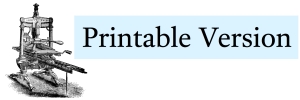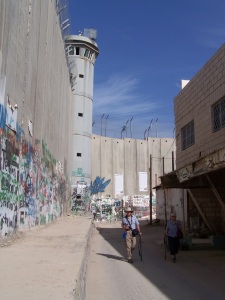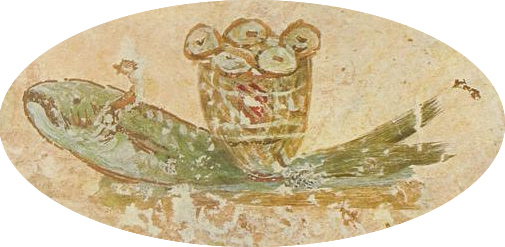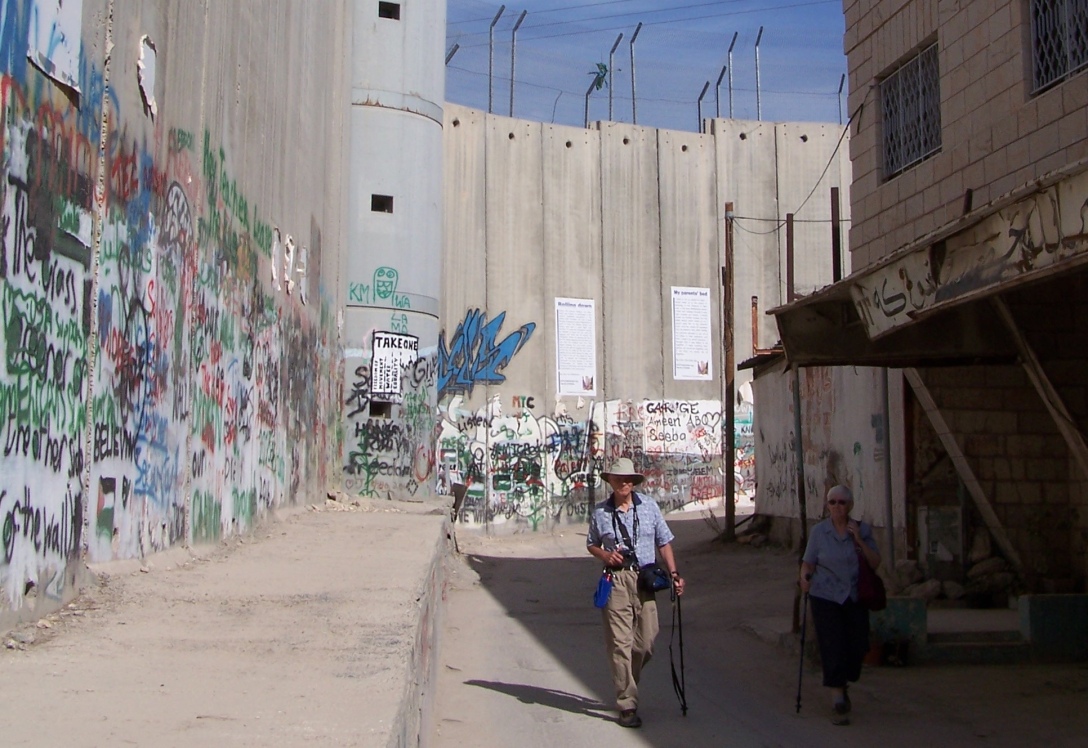In his State of the Union address President Trump declared that building a wall on the U. S. border with Mexico is a moral issue.[1] According the the president, morality dictates that a border wall must be constructed because only in this way can “the safety, security, and financial well-being of all Americans” be assured. The president went on to portray illegal immigrants in the most sinister terms. He claimed illegal immigrants are violent criminals who prey upon law-abiding citizens and who steal the jobs of American workers. His tactics of villainization, demonization, and dehumanization of the other were on full display as he argued for the moral imperative of looking out for the interests of “Number One.”[2] It is cruel not to build the wall, the president argued. Cruel to fellow U.S. citizens who become the victims of dangerous and selfish illegal immigrants who crowd out our own people and use up the resources that are rightfully ours.
 President Trump’s moral argument in favor of the U.S.-Mexico border wall expresses an ethic that can be summed up as follows: Love your fellow citizen, with whom you have so much in common. Fear the illegal immigrant, who is so different from you. It is, in other words, precisely the “love your friend and hate your enemy” ethic that Jesus rejected in the Sermon on the Mount.
President Trump’s moral argument in favor of the U.S.-Mexico border wall expresses an ethic that can be summed up as follows: Love your fellow citizen, with whom you have so much in common. Fear the illegal immigrant, who is so different from you. It is, in other words, precisely the “love your friend and hate your enemy” ethic that Jesus rejected in the Sermon on the Mount.
However, it is not the president’s moral argument that I wish to examine in this essay. Instead I want to hold the wall building mentality itself up to the light of Jesus’ teachings, to see how it fares in comparison with Gospel message. I shall do so by considering three passages from the Gospel of Matthew that have something to say either about walls or about the proper treatment of strangers. The first passage we will examine pertains to Jesus’ personal calling. The second passage pertains to the mission of the Church. And the third pertains to the final judgment.
The Kingdom of Heaven Breaks Through
The first passage is an enigmatic remark Jesus made about John the Baptist:
From the days of John the Baptist until now the Kingdom of Heaven is breaking through, and breakers-through are seizing it. (Matt. 11:12)
The Gospel of Luke has a different form of this saying, which reads:
The Kingdom of God is being proclaimed, and everyone is urged into it. (Luke 16:16)
The two versions are mutually complimentary. Matthew’s version is difficult to understand, but I think it is likely that it comes closer to the actual words Jesus spoke in Hebrew.[3] Luke’s version is better Greek and therefore easier to understand, and in my view it correctly conveys the original intention of Jesus’ saying.
Matthew’s version of the saying is based on the imagery of a wall. Someone or something has build an imposing barrier, but the Kingdom of Heaven is breaking through it. Nothing can prevent the Kingdom of Heaven’s advance. Luke’s version of the saying helps us understand what this barrier-shattering imagery means: the Kingdom of Heaven breaks through the dividing wall as Jesus’ message is proclaimed. Here it is the message that Jesus himself proclaimed, as distinguished from the messages later believers would proclaim about Jesus, that enables the Kingdom of Heaven to breach the wall of resistance.
In order to comprehend the meaning of Jesus’ saying, we must first understand what the Kingdom of Heaven is, how Jesus’ message was proclaimed, and who it was that wanted to prevent the Kingdom of Heaven from breaking through. Only then can we appreciate how Jesus’ saying speaks to the wall-building mentality prevalent in our own time
What Is the Kingdom of Heaven?
The Kingdom of Heaven is a concept known from the teachings of Jesus and from rabbinic literature.[4] In rabbinic sources the Kingdom of Heaven refers to divine intervention to overturn injustice and inhumanity and to establish freedom and peace. According to the rabbinic sages the Kingdom of Heaven was revealed in the miraculous events of the Exodus when God redeemed the children of Israel from slavery in Egypt. God conquered Pharaoh and the gods of Egypt when the Israelite refugees passed safely through the Red Sea waters on dry land. Those same waters, however, engulfed the horses and chariots of Pharaoh and drowned the soldiers who pursued the freed Israelite slaves. Military might was no match for the God of the stranger who hears the cries of the oppressed.

Like the sages, Jesus also connected the Kingdom of Heaven with the redemption from Egypt, but he did so in a very up-to-date and immediate manner. If I drive out demons by the finger of God, Jesus said, then the Kingdom of Heaven has come upon you (Luke 11:20; cf. Matt. 12:28).[5] Performing a miracle by “the finger of God” alludes to the story of the Exodus, when Pharaoh’s magicians were unable to replicate the signs and wonders Moses performed, and who therefore confessed that “This is the finger of God” (Exod. 8:19). So Jesus compared his driving out of demons to the miraculous signs of redemption from slavery from Egypt. Just as the Kingdom of Heaven was revealed in the time of Moses, so the Kingdom of Heaven was being revealed once more in the work of Jesus who proclaimed that redemption was coming to Israel again.
How Was the Kingdom of Heaven Proclaimed?
Jesus proclaimed the Kingdom of Heaven through a combination of word and deed. By performing miraculous healings Jesus demonstrated liberating power of the Kingdom of Heaven. And through his teachings he interpreted what that liberating power means. The miraculous healings were evidence that God was destroying the powers of evil and restoring justice, dignity, and joyfulness to oppressed human beings.
There is a reason why the expulsion of demons was such an apt sign of redemption. Under the Roman occupation of Palestine demon possession became something of an epidemic. Troubles from evil spirits are mentioned from time to time in the Hebrew Scriptures, but it certainly was not a common experience. But in the first century demon possession reached unprecedented proportions. Exorcism became a profession. Josephus, a first-century Jew who survived the destruction of the Temple and wrote down a history of his people, mentions that the Essenes were known as skilled exorcists.[6] Why was demon possession such a problem in the time of Jesus? Some scholars have suggested that demon possession was an expression on a micro-level of the colonization of Israel by the Roman Empire on the macro-level. Demon possession was internalized imperialism, a spiritual symptom of political injustice.[7] That Roman imperialism could be the cause of the increased incidence of demon possession makes sense from within the ancient Jewish world view. According to apocalyptic sources, Satan was the spiritual force who animated the empires that colonized Israel.[8] While Satan maneuvered the political oppressors of Israel in and out of power on the macro-level, the demons harassed, tormented and possessed individual Israelites on the micro-level. That is why Jesus’ expulsion of demons could be a sign of a much greater redemption that was taking place on the political and heavenly planes. Just as the thawing of the snow and the arrival of Father Christmas were harbingers of the end of the White Witch’s reign,[9] so Jesus’ expulsion of demons by the finger of God spelled the end of Roman imperialism and heralded the downfall of Satan. Satan’s reign of terror over humankind, the reign of fear and violence and injustice was coming to an end because the Kingdom of Heaven was being revealed. That was the Gospel message Jesus proclaimed.
Who Wished to Prevent the Kingdom of Heaven’s Breakthrough?
Who then erected the wall to keep the Kingdom of Heaven from advancing? Everyone who benefitted from the status quo. Everyone who swallowed the propaganda of the Pax Romana. Everyone who made a profit from imperialism, everyone who was afraid of uncertainty and change and turned to the mighty Roman legions to save them: that is who built the wall. Those who sat on a pile of wealth and worried about the poor and oppressed peoples who might try to take it from them: those were the builders of the wall. But no matter how high the emperor built the wall, no matter how many Roman soldiers defended it, neither Satan on his throne, nor Caesar in his palace could keep the Kingdom of Heaven from bursting through. The God of humanity and justice would prevail.
Everyone is being urged into the Kingdom, says Luke. Breakers-through are seizing it, says Matthew. Those who aren’t afraid, but who yearn for divine redemption to liberate our world from the evils of injustice are the ones who rejoice to see the collapse of the wall.
No Gate Will Prevail Against It
We turn now from a saying about Jesus’ mission to a saying in which Jesus defined the mission of the Church. This saying was given in response to Peter’s realization that Jesus must be the anointed redeemer God would use to liberate Israel and all humankind from the tyranny of Satan. Jesus’ accepted Peter’s recognition and explained:
Upon this rock I will build my Church, and the Gates of Hades will not prevail against it. (Matt. 16:18)
Here, too, we encounter the imagery of a wall, a wall with a fortified gate. Hades (in Hebrew, “Sheol” or “Death”) is the kingdom of the dead. It is pictured here and in several biblical passages as surrounded by a high and impenetrable wall.[10] According to the biblical descriptions, no soul the Gates of Sheol or the Gates of Death admitted would ever venture forth again. But here Jesus states that the mission of the Church will be to lay siege to the Kingdom of Death, to storm its gates and rescue the prisoners trapped inside. “Do not be afraid to pass those gates,” Jesus assures Peter and his successors. “The Gates of Hades will not be able to trap you.”
Jesus, the resurrected Lord, has torn the Gates of Sheol from their hinges. He has hurled them to the ground. Now it was time to set the prisoners free. Everyone trapped in darkness, everyone hidden in shame, everyone dragged down by the powers of evil is to be brought out into the light and liberated at last. The chains of addiction are to be broken. The shackles of poverty and ignorance are to be loosed. The dungeons of prejudice and the prison cells of hate are to be emptied of their inmates. The Church’s mission is to fearlessly enter the stronghold of wickedness and ransom the captives for the Kingdom of Heaven. The task entrusted to the Church is to pry open the bars of despair, tear down every brick of division until the walls protecting the Kingdom of Death can no longer hold a single prisoner inside.
The Church’s mission is not to build walls, but to abolish them. When it comes to walls demolition, not construction, is the calling of Jesus followers.
When I Was a Stranger
We turn now from Jesus’ mission and the Church’s calling to a saying about the end of days. It is a lengthy passage, so I quote it here in condensed form:
When the Son of Man comes in his glory…he will sit on his glorious throne. Each of the nations will be gathered before him and he will separate them from one another as a shepherd separates sheep from goats. He will place the “sheep” on his right and the “goats” on his left. Then the King will say to those on his right, “Come, you who are blessed by my Father. Take your inheritance…. For I was a stranger and you invited me in….” Then he will say to those on his left, “Depart from me, you who are cursed…. For I was a stranger but you did not invite me in…. For whatever you did not do for the least of these my brothers you did not do for me. (Matt. 25:31-35, 41-43, 45)
Using the imagery of a shepherd with a mixed flock of sheep and goats, Jesus described the judgment of the nations. This is not a scene describing how individuals will be judged. This is a scene of collective judgment. It teaches that there is such a thing as corporate responsibility. Whole societies will be held to account, entire countries will be scrutinized for their actions. Civilizations will be weighed in the scales of justice. They will be judged on the basis of their compassion. On the basis of man’s inhumanity toward man they will be condemned.

Scholars and exegetes dispute the identity of the ones Jesus identifies as his brothers. Some argue from this passage that a society will be judged on the basis of how well or how poorly it treated the Christians who belonged to it, for who else could be Jesus’ brothers? But Christians are too narrow a definition of the brothers of the one who calls himself the Son of Man.
The Son of Man is a universal title suitable for someone who will judge the entire world. As the universal judge of all humankind, the Son of Man shares human brother-and-sisterhood in common with every human being. An ancient Jewish apocalypse interpreted the title of the Son of Man literally, identifying the eschatological judge as Abel the son of Adam who was murdered by his brother Cain.[11] In Hebrew “Adam” means “human.” Thus Abel, the first victim of man’s inhumanity toward man, would be the one to condemn all the perpetrators of inhumane actions and to vindicate all the victims of hatred, jealousy, and fear. In the Gospel of Matthew, Jesus the crucified and risen Lord steps into Abel’s eschatological role. As the Son of Man, Jesus will weigh each society in the divine scales of humanity and condemn those who lacked compassion for their brothers and sisters, every son of Adam, every daughter of Eve.
“When I was a stranger did you invite me in?” Jesus will ask each country. “Or did you seal the borders against me? When I came seeking your help did you build a wall to block my way? Did you lower the portcullis and raise the drawbridge to keep me out? Did you point guns at me and use tear gas to drive me away?[12] Or did you welcome me when I came seeking asylum? Did you show me compassion when I entered your country searching for a better life?”
A society’s treatment of the stranger will determine whether that society is judged to be a sheep or a goat. Whether or not we are able to recognize the stranger as our sister and our brother today will determine whether the Son of Man will station us on his right or dismiss us to his left on the Last Day.
The Way of Jesus, or the Morals of Rome?
We have held the wall-building mentality up to the Gospel’s light. In that light we find wall building to be wanting to be antithetical to the teachings of Jesus. Those who build walls to keep from having to share their wealth and their privilege with their brothers and sisters do not espouse the morality of Jesus, but morals of Rome. A country like the United States, which on account of “an economic miracle” is witnessing “an unprecedented economic boom…that has rarely been seen before” can surely afford to provide for its own citizens and be hospitable to the stranger who knocks at our door. President Trump offers United States citizens a false alternative: either love your fellow Americans and deny the stranger a helping hand, or let our country be despoiled by illegal immigrants.
Jesus calls his followers to pursue an altogether different path. He calls us to love the neighbor who is like us, the stranger who is different, and even the enemy we fear. According to Jesus wealth isn’t yours or mine to protect, it is everyone’s to share. Walls do not defend us from peril without, they imprison us with fear from within. Walls separate us from our brothers and sisters, sons of Adam and daughters of Eve. This human family that unites us all together is the God-given reality. Divisions we create are the myth. Concrete walls and steel barriers cannot make the fantasy any more true. What God has joined together no mortal can separate. Wall builders live in a delusion of fear and despair. They cut themselves off from human community and fellowship with God. But walls built to prevent the sharing of blessings which are ours only by grace will topple just as surely as darkness gives way to light, as surely as Jesus is risen from the dead.
Click here to return to the Whole Stones blog.
Notes
[1] President Trump’s 2019 State of the Union address can be viewed on the internet archive at the following link: https://archive.org/details/CSPAN_20190206_020200_State_of_the_Union_Address/start/60/end/120.
[2] See my Whole Stones essay, “They Are Animals.”
[3] On Jesus’ saying on the Kingdom of Heaven breaking through, see Robert L. Lindsey, “The Kingdom of God: God’s Power Among Believers” on JerusalemPerspective.com. For a discussion of the Lukan and Matthean forms of Jesus’ saying and a possible Hebrew reconstruction of Jesus’ saying, see David N. Bivin and Joshua N. Tilton, “ Kingdom of Heaven Is Increasing,” on JerusalemPerspective.com.
[4] On the Kingdom of Heaven, see David N. Bivin and Joshua N. Tilton, “The Kingdom of Heaven in the Life of Yeshua,” on JerusalemPerspective.com and the sources we cited there.
[5] See R. Steven Notley, “By the Finger of God,” on JerusalemPerspective.com.
[6] On the Essenes and their place in first-century Jewish society, see my Whole Stones essay, “Locating Jesus’ Place on the Political-Ideological Spectrum of Second Temple Jewish Society.”
[7]For this view I am indebted to Richard A. Horsley, Jesus and the Spiral of Violence: Popular Jewish Resistance in Roman Palestine (San Francisco: Harper & Row, 1987), 184-190; idem, “‘My Name Is Legion’: Spirit Possession and Exorcism in Roman Palestine,” in Experientia, Volume 1; Inquiry into Religious Experience in Early Judaism and Christianity (ed. Frances Flannery, Colleen Shantz, and Rodney A. Werline; Leiden: Brill, 2008), 41-57.
[8] See my discussion in “Like Lightning from Heaven (Luke 10:18): Jesus’ Apocalyptic Vision of the Fall of Satan,” on JerusalemPerspective.com.
[9] I allude here to The Lion, the Witch, and the Wardrobe by C. S. Lewis. For an audio recording of this story, see my recent Whole Stones post, “A Christmas Gift.”
[10] Cf., e.g., Job 38: 17; Ps. 9:13; 107:18; and Isa. 38:10.
[11] See the Testament of Abraham 13:1-8. On Jesus’ use of the title, the Son of Man, see R. Steven Notley, “Jesus and the Son of Man,” on JerusalemPerpsective.com.
[12] See Clare Lombardo, “U.S. Agents Spray Tear Gas At Migrants, Briefly Close Tijuana Border Entry,” NPR November 25, 2018; Daniella Cheslow, “U.S. Agents Fire Tear Gas At Migrants Trying To Cross Mexico Border,” NPR: Morning Edition January 2, 2019.



Once again, Joshua, you have written a well-researched, beautifully documented essay. Thank you! Your thoughts about and comments on the Exodus and the “Finger of God,” which I had never heard expressed that way before, reveal your deep spiritual insights — fruits of your faithful following of Jesus’ Way. Your courage in standing up for the poor and oppressed make you a true blessing in this world.
LikeLike
[…] the Gentiles are separated like sheep from goats (Matt. 25:31-46). On this judgment scene, see “‘Build That Wall!’: The Morals of Wall Building in the Light of Jesus’ Gospel,” under the subheading “When I Was a […]
LikeLike
[…] Roman imperialism, and a war between the God of Israel and Satan, see Joshua N. Tilton, “‘Build That Wall!’: The Morals of Wall Building in the Light of Jesus’ Gospel,” under the subheading “How Was the Kingdom of Heaven Proclaimed?” at WholeStones.org. On the […]
LikeLike
[…] On the relationship between demon possession and colonization, see my discussion in “‘Build That Wall!’: The Morals of Wall Building in the Light of Jesus’ Gospel,” under the subheading “How Was the Kingdom of Heaven Proclaimed?” and the literature cited […]
LikeLike